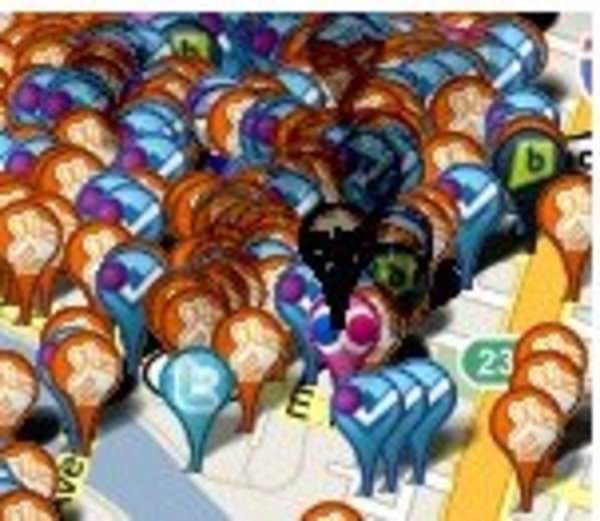Foursquare says it’s in talks with all the major search engines to index the startup’s location data. We’re hearing that Google in particular may be in talks with all the major players in the location-based social networking market. What would a big search engine do with a little startup’s check-ins and annotations about locations? Here are some ideas.

The paid partnerships between Google, Microsoft and Yahoo with Twitter, Facebook, MySpace and more that were launched last Fall could provide a model, but location provides new opportunities, as well. Isn’t it amazing that on a Web so dependent on Google, there are emergent new kinds of websites so valuable they can charge giant search engines for their content? Here are some things Google might do with that content.
Related:
- Why We Check-in: The Reasons People Use Location-Based Social Networks
- Foursquare’s Location Layers – This is Big
- What Twitter’s New Geolocation Makes Possible
Real-time search
Last fall Google started including Tweets, fresh blog posts and more in a live scrolling box on the search results page for particularly hot search queries. Mobile location-based social networks, their comments and tips could help populate those kind of search results for certain keywords or venues.
Searching for the big basketball game? Why not include the notes and tips of people checking in at the game right now in the results? Check-ins in general have a lot of potential. Google-backed social TV app Miso or entertainment check-in app GetGlue could power media check-ins that would make search results much fresher.
Super Social Maps
Why not annotate map search with live and archival location check-in notes, annotations, tips, etc.? Imagine searching for directions to a venue and being told how many people and which friends were currently checked in there on Loopt, Whrrl and Foursquare. Seeing not just restaurant reviews from CitySearch and Trip Advisor but quick tips from location networks? Sounds like a great idea to me.
Mobile Search
No need to go into too much detail about this: Check-in app content would be a very logical addition to mobile search results. The growth of branded layers of content annotating locations means that a Google mobile search could become a search for nearby content published by the Independent Film Channel, the Huffington Post, etc. That makes mobile search and location networks more appealing for everyone.
Privacy, monetization, relevance, personalization, temporal strategies and other matters still need to be figured out. These networks are still very small. The largest among them, Foursquare, has a reported 2 million users. That’s less than 25% the size of StumbleUpon, for example, and just over one third the size of curation blogging platform Tumblr.
The potential for location-based social networks is huge, though. And the search engines know it. That’s why they are talking to the startups. For these little startups, this kind of monetization could be an important life-line to fund their continued innovation, too.

















